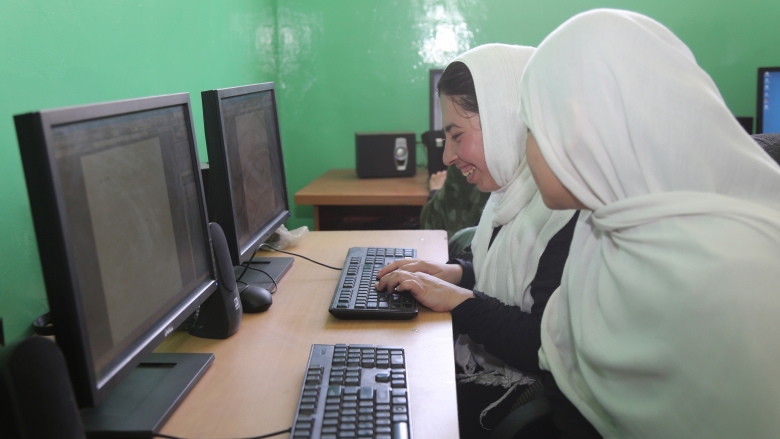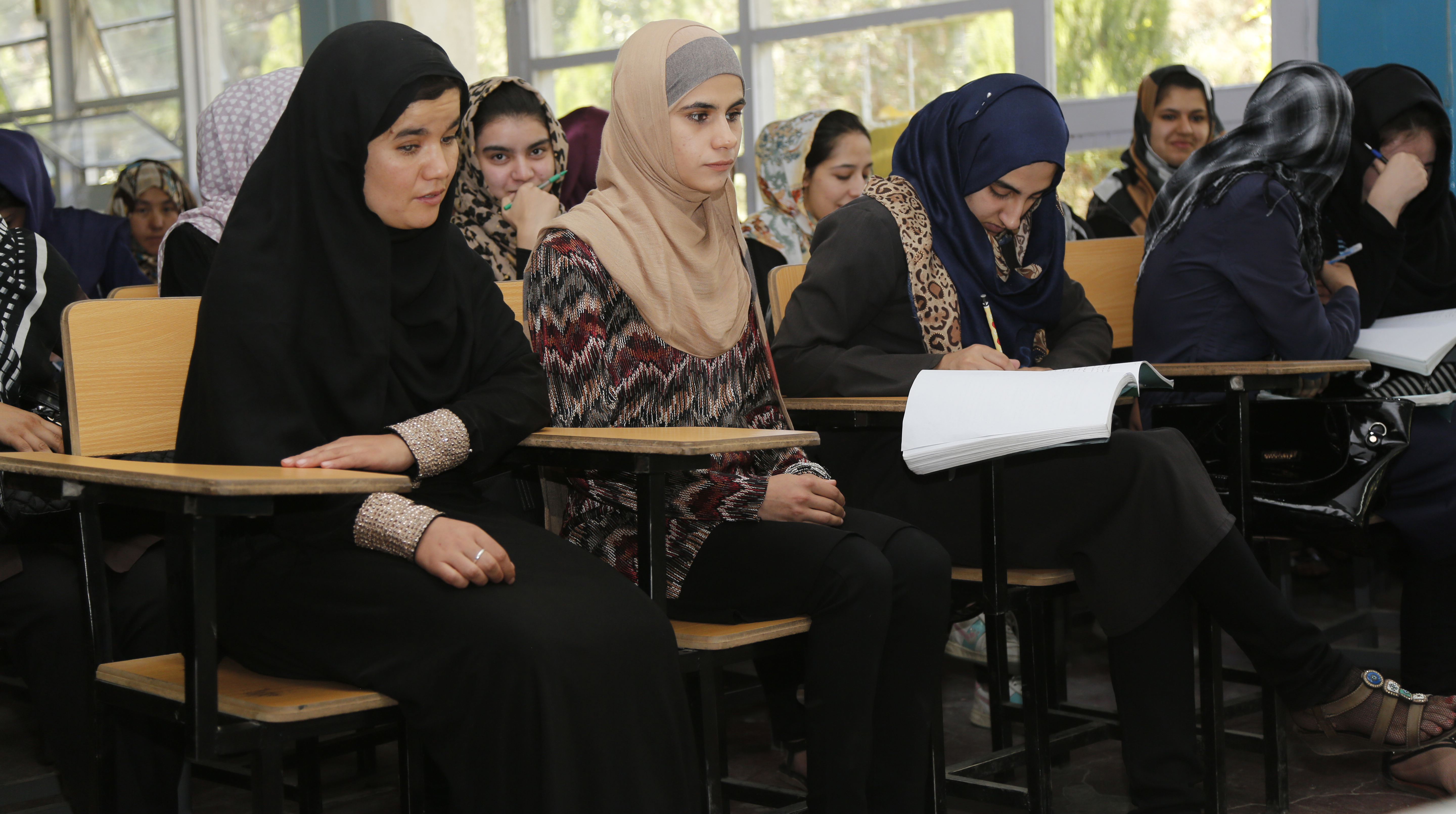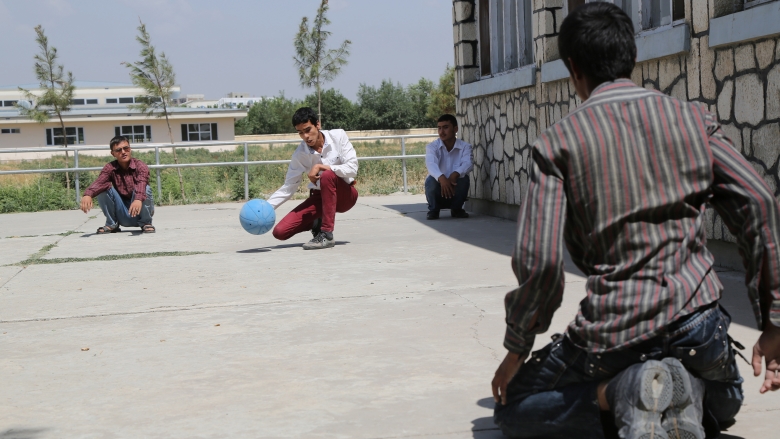KABUL CITY – Her hands move slowly over the keyboard as she starts typing during computer class. “We are students at the High School for the Blind,” types Tamana Niazi in English on the computer screen. Nineteen-year-old Tamana was born blind. Although she cannot see, Tamana possesses the dedication to work hard so that she does not end up being a burden for her family and society.
The support she receives from her family as well as from the Vocational High School for the Blind enables her to attend school. Together with her four classmates in Grade 11, she practices MS Word in the school’s computer lab. “Although it is more difficult for persons with blindness to learn computer skills, I am determined to do it because I want to become a teacher after I finish my studies,” Tamana says.
The high school for the blind is the only public school in the nation that provides an opportunity to blind and visually impaired individuals to study in a conducive learning environment with the requisite teaching material and equipment. The school has three departments—vocational skill development, general education, and Islamic education—structured on a 12-grade teaching system.
Currently, more than 170 students, 65 of whom are girls, are studying at the school. The majority of the students have complete blindness while a small number have impaired vision, which allows them to see only a short distance.
Some of the high school graduates have enrolled at public universities after successfully passing the Kankor (university entrance) exam, majoring in subjects such as law, journalism, literature, and psychology. “Since 2012, 16 students have graduated from the vocational school,” says Khoja Abdul Kabir Sediqi, the school principal.
Visually impaired students sit for a special Kankor exam with 100 multiple choice questions. An assistant reads the questions and choices aloud to the student, who answers orally. The assistant then circles the given answers on the exam sheet.
Nasir Ahmad, 24, one of the high school graduates who passed the Kankor exam, is studying psychology of the blind at the Burhanuddin Rabbani University, a public institution. “I am not a blind person anymore. I have enlightened myself with the light of knowledge and awareness,” he says. “In the future, I want to become a teacher and serve other blind people.” He manages as well as any other student by recording the lectures with a sound recorder and turning the study material into Braille.
Salima, 21, another graduate from the school, is now a law and political science student at Kabul University. To prepare for Kabul University’s entrance exam, she and her classmates listened to old exam questions and answers. The National Publications Department, which has been equipped and funded by the World Bank, recorded the old exam sheets in audio. The students listened regularly to the recordings and practiced answering the questions. This method helped them to answer the questions correctly during the actual exams.
“In high school, we studied as a group because we all had the same problem,” says Salima. “At the end, those group studies helped us a lot in passing the university’s entrance exam.”



